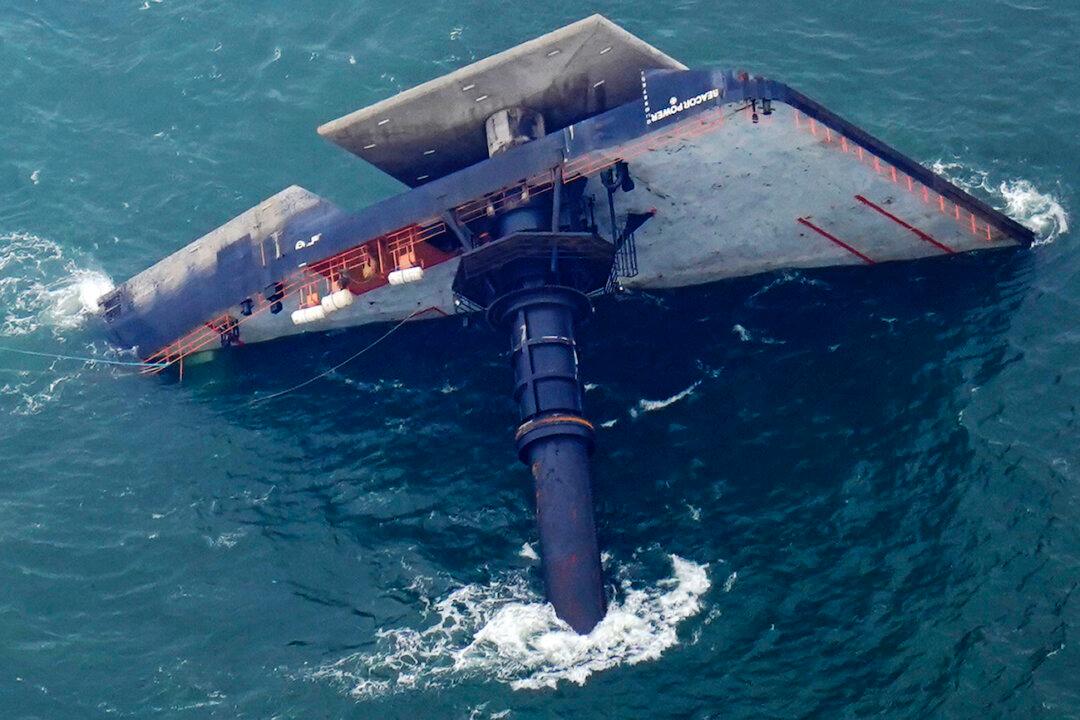CUT OFF, La.—The U.S. Coast Guard said it will suspend the search for crew members who disappeared when a lift boat capsized off Louisiana last week at sunset Monday, and authorities do not expect to find more survivors from the vessel.
The grim news from Capt. Will Watson, commander of the Coast Guard Sector New Orleans, comes after days of searching for the missing workers from the oil industry lift boat Seacor Power, which capsized Tuesday during a fierce storm in the Gulf of Mexico about eight miles (13 kilometers) south of Port Fourchon. Six of the 19 workers on the boat were rescued within hours of the wreck; five more bodies were found in the water or on board the vessel in the days since then. Eight remain missing.





